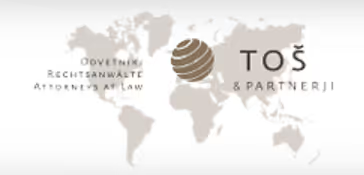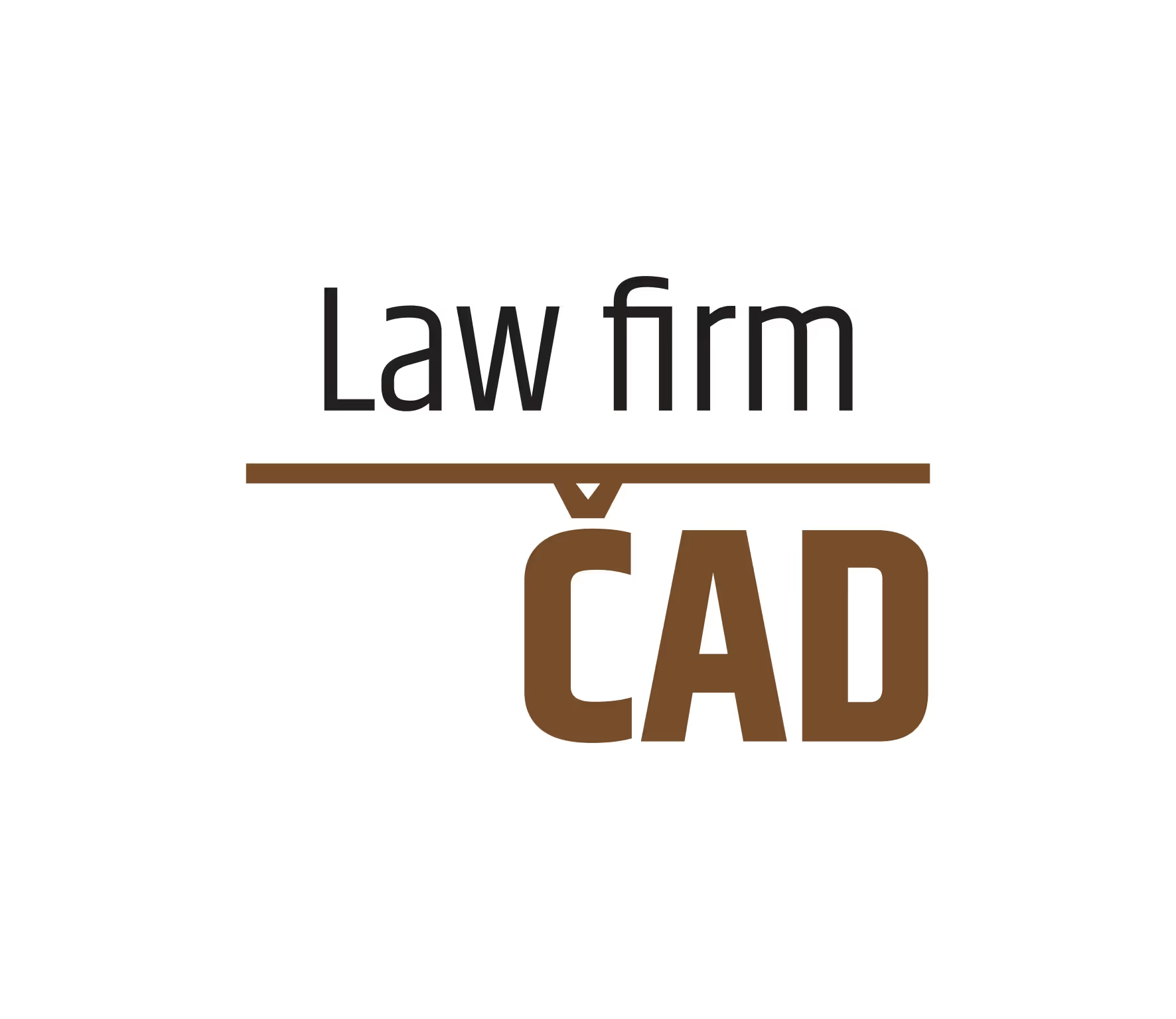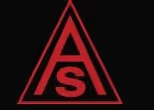Debt Collection Slovenia: Free Guide & Local Agency
Understand local debt recovery practices in Slovenia and partner with a top-rated debt collection agency. Easy claim submission, no-cure-no-pay terms, and real-time tracking.


Need a Local Debt Collection Agency in Slovenia?
Struggling with overdue invoices in Ljubljana, Maribor, or Koper? Debitura connects you instantly to local Slovenian-speaking debt collection experts—fully compliant with Slovenia’s Obligations Code (Zakon o obligacijskih razmerjih) and statutory interest limits.
- No Win, No Fee: Zero upfront; success fees from 7.5%–30%
- Rapid Local Action: Specialists adept in Slovenian amicable collection methods and court enforcement procedures
- Trusted Performance: 87% recovery rate across 600+ local cases
- Real-time Updates: Manage claims online in Slovenian or English, escalate smoothly to judicial collection
Upload your claim in 2 minutes →




Need a Local Debt Collection Agency in Slovenia?
Struggling with overdue invoices in Ljubljana, Maribor, or Koper? Debitura connects you instantly to local Slovenian-speaking debt collection experts—fully compliant with Slovenia’s Obligations Code (Zakon o obligacijskih razmerjih) and statutory interest limits.
- No Win, No Fee: Zero upfront; success fees from 7.5%–30%
- Rapid Local Action: Specialists adept in Slovenian amicable collection methods and court enforcement procedures
- Trusted Performance: 87% recovery rate across 600+ local cases
- Real-time Updates: Manage claims online in Slovenian or English, escalate smoothly to judicial collection
Upload your claim in 2 minutes →
Debt Collection in Slovenia: Your Essential Guide (2025)
Why you can trust this guide
At Debitura, we uphold the highest standards of impartiality and precision to bring you comprehensive guides on international debt collection. Our editorial team boasts over a decade of specialized experience in this domain.
Questions or feedback? Email us at contact@debitura.com — we update this guide based on your input.
Debitura By the Numbers:
- 10+ years focused on international debt collection
- 100+ local attorneys in our partner network
- $100M+ recovered for clients in the last 18 months
- 4.9/5 average rating from 621 reviews
Expert-led, locally validated
Written by Robin Tam (16 years in global B2B debt recovery). Every page is reviewed by top local attorneys to ensure legal accuracy and practical steps you can use.
Contributing local experts:
Last updated:
Tackling delayed payments in Slovenia? Experience seamless debt recovery with Debitura, your ultimate guide fusing Slovenia's insights with global know-how. Let's master Slovenia's debt collection complexities together.
Navigating Slovenian Debt Recovery: Key Players Explained
Effective debt recovery in Slovenia relies on specialized local professionals, each governed by specific Slovenian laws:
Debt Collection Agencies: Handle amicable negotiations and pre-legal settlements under the Law on Enforcement and Securing.
Lawyers: Essential for legal representation in complex cases and judicial proceedings across Slovenia's court system.
Bailiffs: Court-appointed officials responsible for enforcing judgments through asset seizures and wage garnishments.
Slovenia’s Civil Court System for Debt Collection
Efficient debt recovery in Slovenia hinges on mastering its intricate legalities. Adherence to these laws facilitates equitable debt reclamation, reinforces trust, and safeguards the integrity of business conduct throughout the process.
The Regulatory Environment and Civil Court System in Slovenia
Understanding Slovenia’s court hierarchy helps creditors navigate debt recovery efficiently. The Slovenian judiciary is structured clearly to manage disputes at various levels:
- Local Courts: First-level courts handling smaller civil cases and initial debt collection claims.
- District Courts: Oversee larger civil cases, enforcement actions, and appeals from local courts.
- Higher Courts: Handle appeals against district court rulings, ensuring correct legal application.
- Supreme Court of Slovenia: Highest authority overseeing consistent legal interpretation nationwide.
This clear structure ensures fair and orderly resolution for all debt recovery matters in Slovenia.
Key Legislation Impacting Debt Collection in Slovenia
In Slovenia, a framework of specific laws and regulations governs the process of debt collection to ensure fair practices and the protection of both creditors and debtors.
- Law on Enforcement and Securing (ZIZ-NPB28): Governs the enforcement processes for debt collection, including property seizure, garnishment, and procedures for handling multiple creditors.
- Consumer Protection Act: Protects the rights of consumers in debt collection scenarios, including limitations on wage garnishment and seizure of essential items.
- General Data Protection Regulation (GDPR) as implemented in Slovenia: Ensures the protection of personal data throughout the debt collection process, mandating transparency and lawful processing.
These laws create a comprehensive legal basis for conducting debt collection in Slovenia, establishing obligations, methods, and protections critical for upholding responsible and ethical practices in the recovery of debts.
Consumer Protection from Unfair Collection Practices in Slovenia
In Slovenia, consumer protection in the context of debt collection is rigorously enforced to ensure fair treatment and privacy of individuals facing debt recovery actions.
- Debt collection agencies must comply with legal steps including adhering to regulations that protect consumer rights before making contact.
- Consumers have the right to challenge irregularities in the enforcement process and propose alternative actions if they lack sufficient assets for repayment.
- Limits are placed on debt collection practices, such as exemptions from seizure for certain income sources and restrictions on garnishing wages.
- Legal remedies are available for consumers who believe their rights have been violated by debt collectors, including the option to file complaints or initiate legal proceedings.
- Recent or proposed reforms in Slovenia aim to enhance consumer protection in debt collection, including improvements in enforcement procedures and measures to prevent severe enforcement consequences.
With these frameworks, Slovenia strives to balance the interests of creditors and protect consumers from unfair practices in debt recovery. Being informed about these protections empowers consumers to navigate debt collection with confidence and assert their rights when necessary.
Navigating Amicable Debt Collection in Slovenia
Amicable debt collection in Slovenia prioritizes direct negotiations, resolving unpaid debts swiftly without involving courts.
- Five-Year Statute of Limitations: Timely initiation is critical to maintain your legal rights.
- Statutory Interest Rates: Defined by Slovenian law, these encourage debtors to settle debts swiftly.
- Robust Consumer Protection: Slovenian law grants debtors explicit rights, such as proposing structured repayments and contesting claims, influencing negotiation dynamics.
- Clear Priority Rules: Slovenian legislation precisely determines creditor repayment priorities, guiding amicable negotiations effectively.
- Mandatory Documentation: Slovenian courts and agencies emphasize comprehensive documentation—including formal contracts, invoices, and correspondence—as vital for amicable recovery.
Navigating Amicable Debt Collection in Slovenia
Amicable debt collection in Slovenia prioritizes swift resolution through structured negotiation, guided by local practices and regulations. Rather than immediately pursuing legal action, creditors first engage debtors directly with formal payment reminders and customized repayment plans, respecting debtor rights as outlined in Slovenia’s Law on Enforcement and Securing.
Role of Debt Collection Agencies in Slovenia
Specialized collection agencies play a critical role by employing locally effective negotiation tactics, culturally tailored communication, and clear documentation procedures. These agencies facilitate amicable settlements by mediating between creditors and debtors neutrally, significantly improving recovery success.
Key Advantages of Slovenia’s Amicable Approach
- Minimizes legal costs and administrative burdens.
- Preserves important commercial relationships through respectful negotiation.
- Offers flexible repayment arrangements aligned with local debtor expectations.
When to Shift to Legal Collection in Slovenia
Transitioning from amicable to legal collection is necessary when debtors consistently refuse cooperation, ignore structured reminders, or dispute the claim. Slovenian practice strongly advises exhausting amicable channels first due to the higher expenses and longer timelines associated with judicial enforcement.
Judicial Debt Collection in Slovenia: Navigating the Court System
When amicable debt collection fails in Slovenia, judicial action becomes necessary. The judicial approach involves structured court proceedings governed by Slovenia’s Law on Enforcement and Securing (ZIZ), emphasizing fairness, efficiency, and debtor protections.
- Court Hierarchy: Structured into Local, District, Higher, and Supreme Courts.
- Court Orders: Essential judgments authorizing legal enforcement actions.
- Consumer Protections: Legal limits safeguard debtor livelihoods during enforcement.
- Small Claims: Streamlined judicial process for lower-value debts.
- Legal Costs: Parties initially bear their own fees, impacting litigation strategy.
Understanding the Importance of a Court Order
A court order (also called an enforceable judgment) is an official ruling confirming the validity of your claim against the debtor. Without this formal judgment, creditors cannot legally enforce debt recovery actions, such as garnishing wages or seizing assets. Obtaining this judgment involves submitting a precise proposal to the court detailing the debt and preferred enforcement methods. Only once granted can bailiffs execute the necessary enforcement measures.
Careful adherence to these judicial procedures ensures effective debt recovery in Slovenia.
Determining the Appropriate Court in Slovenia
Choosing the right court in Slovenia depends on your claim’s value and complexity. The Slovenian judiciary is structured into Local, District, Higher, and Supreme Courts, each suited to specific case types:
- Local Courts: Handle small-value civil cases, including straightforward debt recovery.
- District Courts: Manage higher-value or more complex disputes and appeals from Local Courts.
- Higher Courts: Review appeals and ensure proper legal application in District Court cases.
- Supreme Court: Addresses significant legal questions, maintaining consistent nationwide standards.
This clear division ensures efficient, specialized handling of debt recovery claims.
Small Claims Court in Slovenia
Slovenia’s Small Claims Procedure simplifies debt recovery for lower-value claims. It’s specifically designed for straightforward civil and commercial disputes below a defined monetary threshold, offering faster decisions and reduced costs. Key features include:
- Simplified Process: Streamlined filings and quicker judgments.
- Limited Appeals: Appeals are restricted, emphasizing accuracy in initial documentation.
- Cross-border Compatibility: Efficiently handles international small claims within the EU.
Careful preparation of supporting documents is essential due to limited appeal options. Slovenia's Small Claims Procedure exemplifies efficient justice, significantly reducing complexity and legal costs for creditors.
Ordinary Proceedings in Slovenia
In Slovenia, ordinary proceedings are the standard legal process for resolving disputes that exceed the jurisdictional limits of the small claims court. Unlike small claims procedures, which are designed for quicker resolution of lower-value cases, ordinary proceedings handle more complex and higher-value disputes. This approach provides a comprehensive examination of the case, allowing for a detailed presentation of evidence and legal arguments. One key advantage of ordinary proceedings over small claims court is the ability to handle a broader range of legal issues, offering a more versatile platform for litigation.
Legal representation is typically required in ordinary proceedings, ensuring that parties receive professional advice and advocacy. This requirement reflects the complexity of cases handled under this process. Ordinary proceedings are governed by the Civil Procedure Act (Zakon o pravdnem postopku - ZPP), which outlines the procedural rules and requirements. The act ensures a fair, impartial, and efficient resolution of civil disputes, underpinned by the principles of legality and the right to a fair trial. Through the structuring of the Slovenian judicial system and adherence to robust legal frameworks, ordinary proceedings play a crucial role in the adjudication of rights and obligations, promoting access to justice and upholding the rule of law.
Debt Enforcement in Slovenia: How to Enforce Court Judgments
Once you've obtained a court judgment in Slovenia, enforcing that decision is crucial to actually recovering your debt. Slovenia's structured enforcement process, overseen by official bailiffs, ensures creditor claims are executed fairly and effectively.
- Court Approval Required: Enforcement begins with submitting a formal enforcement proposal to a district court.
- Asset Seizure by Bailiffs: Official enforcement agents (bailiffs) execute court orders through asset seizure and public auctions.
- Debtor Protections: Slovenian law protects essential debtor income and certain personal assets.
- Electronic Submissions: Enforcement requests can be filed digitally via Slovenia's eCourt platform.
- Limited Garnishments: Garnishment restricted to a maximum of two-thirds of debtor income, tighter limits apply for those supporting dependents.
Understanding the Debt Enforcement Process in Slovenia
In Slovenia, enforcing your court judgment requires an official enforcement order—a court-approved document allowing creditors to legally collect debts. Without this enforcement order, creditors can't seize assets or garnish wages.
Slovenian bailiffs play a critical role, carrying out the enforcement order by identifying and seizing debtor assets, such as property or vehicles, which are then auctioned to satisfy the creditor’s claim. However, Slovenian law ensures protection for debtors by limiting asset seizure and income garnishment, thus balancing creditor interests with essential debtor rights.
Costs associated with enforcement—including court fees, bailiff charges, and possible legal fees—vary by complexity and claim size, making careful preparation essential. Slovenia also facilitates easier access to justice through digital submissions via the eCourt portal, allowing creditors to initiate enforcement swiftly and efficiently.
By thoroughly understanding and strategically preparing for Slovenia's debt enforcement procedures, creditors significantly enhance their chances of successful debt recovery.
Insolvency Proceedings in Slovenia: Recovering Debt from Bankrupt Debtors
When debtors in Slovenia become insolvent—unable to pay debts—the usual enforcement methods may no longer be effective. Slovenian law offers a structured bankruptcy process, providing creditors an alternative pathway to recover debts through systematic liquidation or restructuring.
- Creditor-Initiated Proceedings: Creditors can initiate insolvency if debts remain unpaid over two months.
- Public Announcements: Insolvency notices are officially published by the Agency for Public Legal Records (AJPES).
- Court-Appointed Administrators: Professionals oversee asset liquidation and represent debtors legally.
- Priority of Claims: Slovenian law prioritizes employee-related claims, followed by secured and unsecured creditor claims.
- Strict Claim Deadlines: Creditors must formally submit their claims within three months of insolvency declaration.
Understanding the Insolvency Process in Slovenia
Slovenia’s insolvency proceedings follow clear regulations under the Law on Financial Operations, Insolvency Proceedings, and Compulsory Dissolution (ZFPPIPP). The process begins when a court accepts an insolvency petition, submitted by creditors, debtors, or state institutions. A court-appointed insolvency administrator manages the debtor's asset liquidation or restructuring process transparently, with progress publicly reported via the official AJPES website.
To effectively recover debts, creditors must actively participate by registering their claims promptly. Claims are evaluated systematically, categorized based on security and priority—employees typically rank highest, followed by secured and then unsecured creditors. The final distribution of proceeds depends on asset liquidation outcomes.
Creditors should also anticipate certain procedural costs, including court fees and administrator charges, deducted directly from the debtor’s estate. Slovenia’s meticulous and transparent insolvency process ensures creditors have a fair chance of debt recovery, provided they adhere closely to deadlines and procedural guidelines.
Find a Local Debt Collection Lawyer
Need court-ready representation? Share your case once and receive up to three proposals from vetted litigation attorneys—free, fast, and with no commitment.
- Verified specialists
- Quotes in 24 h, no hidden fees
- Fair, pre-negotiated rates

Podjed, Kahne In Partnerji O.p.-d.o.o. is a premier law firm in Ljubljana offering effective Debt Collection services in Slovenia, established in 2006, renowned for its dynamic legal solutions and collaboration with a network of affiliated firms for cross-border mandates.

Law Firm Toš & Partners is a premier law firm in Ljubljana offering effective debt collection services in Slovenia, established in 1989, renowned for expertise and efficiency, and a member of the Association of European Attorneys and Justinian Lawyers, serving the entire EU.

Fatur Menard Law Firm is a premier law firm in Ljubljana offering effective Debt Collection services in Slovenia, recognized as a Top Tier Law Firm by Chambers Europe 2025 and a member of the Slovenian Bar Association, British-Slovenian Chamber, and AmCham Slovenia.
Attorney Office Cerar Žugelj is a premier law firm in Ljubljana offering effective Debt Collection services in Slovenia, established in 2021, recognized for excellence and membership in renowned legal associations, making it the go-to partner for debt recovery.

Odvetniška Pisarna CAD is a premier law firm in Ljubljana offering effective Debt Collection services in Slovenia, established in 1995, recognized for tailored legal strategies, and a trusted partner for businesses seeking excellence in debt recovery.

ASTOP Doo is a premier debt recovery agency in Slovenia offering effective risk-free Debt Collection services, positioning the firm as the go-to partner for debt recovery since 2000, with a 91% recovery rate across Slovenia and the EU. As an exclusive Debitura partner, ASTOP Doo offers No Cure No Pay debt collection based on Debitura's risk-free standard terms and pricing, serving Slovenia, EU member states, and the former Yugoslavia.





.svg)

.webp)
.png)

.png)
.svg)












.svg)

